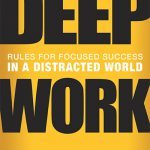I currently do not have a job.
My contract was not renewed last year, and I am looking for work.
It has not been an easy time.
It has made me question God: why has he done this to me? It has made me question myself: who am I? It has led to me experiencing a rollercoaster of emotions, and to be fearful of the future.
However this has also been an opportunity to reflect on what I can learn about God, the Bible and my current situation.
I have learnt four lessons:
1. You might be unemployed but you are never without work.
Work is one of the first gifts from God to humans. We read about it in Genesis 2:15: “God placed the man in the garden to work the earth and keep the garden.” While it is also subject to the curse in Genesis 3, it is the process of working that is cursed, never work itself. That explains why work is harder than it should be, and often a source of frustration, but the fact that work was a good gift from God means that we were created to work.
One of the sad features of modern society is the way that work is linked to pay. It means that much valuable work is not recognised or valued as highly, such as parenting, housework, caring for people, helping out at the local school or sporting team, and also the joyful work of praying and praising God. While I am lacking paid work, there is still plenty of meaningful work I am doing, and to be done.
2. God wants to separate our identity from our work.
Ironically, my previous job was focused on the connection between faith and work. When people asked me the biggest threat to Christians in the workplace I always responded: when your identity becomes too closely linked to your work. Now I am learning about that threat personally. In spite of my best efforts I had underestimated how much my identity was linked to my role. This is a very common experience in our society: notice what happens next time someone meets you for the first time. They will very quickly ask you “What do you do?” Instead of replying with a list of activities, you will usually respond “I am…” That is a strong statement of identity. I am a lecturer. That identity helped me make sense of my place in the world. However, God wants our identity to be rooted in Christ. Read Ephesians 1 and notice how many times Paul reinforces our identity as being ‘in Christ’. This gives us powerful freedom, since we are no longer subject to the power or threats of an employer.
3. God wants us to receive our self-esteem from his love for us.
Another trap for Christians is getting their sense of significance from work. We proudly proclaim our role, and unconsciously measure another’s worth both by the importance of their role and how much they are paid. I have a friend who is between significant roles. She was an executive with a major corporation, and now she is working in hospitality to pay the bills while she continues to apply for roles. She quickly tired of the looks of confusion and pity from her corporate friends when she said she was working in hospitality. She now describes her role as working for a friend to maximise his success in small business. Our sense of value should be embedded in the fact that we are made in the image of God, and that he loved us so much that he sent his son Jesus to die for us. When this knowledge becomes lived out it protects us from the feelings of worthlessness so common amongst the unemployed.
4. God wants us to look to him for our security.
A third trap is that we depend on our work to make us feel secure in this world. God wants us to depend on him rather than our job, and look to him for all that we need. There are countless promises that God will provide for our needs (Psalm 84:11, Matthew 6:32–33, Philippians 4:19). The temptation is to continually look for more security, in spite of a graphic story Jesus told about the foolishness of such an approach and the fragility of life (Luke 12:13–21). As Jesus warned, our security should lie in us being “rich toward God”. I have found great comfort in Proverbs 16:9: that, while I might seek to plan the way, it is God who “establishes my steps”. However, often the way we have been guided only becomes obvious when we look behind us.
While all of this is head knowledge, the reality is that this is a tough time for me and my family. It is a time when the church community is particularly precious. Where I am welcomed not because of the role I have, or how much I am paid, or how many people admire me, or because of the size of my bank balance… but because I am a fellow believer in Christ, equally loved by God, sharing in the ultimate security of eternal life. Church is also a source of purposeful work: preaching, praying, caring for others and being a useful member of the community. However, once again we must guard against even our work in the church becoming something we identify with more than who we are in Christ.
The Bible and the church community have a lot of hope to offer to those who are unemployed, and in taking a biblical perspective on unemployment, we might also correct our own idolatrous relationship with work.
Image: Michael Parker (flickr)















